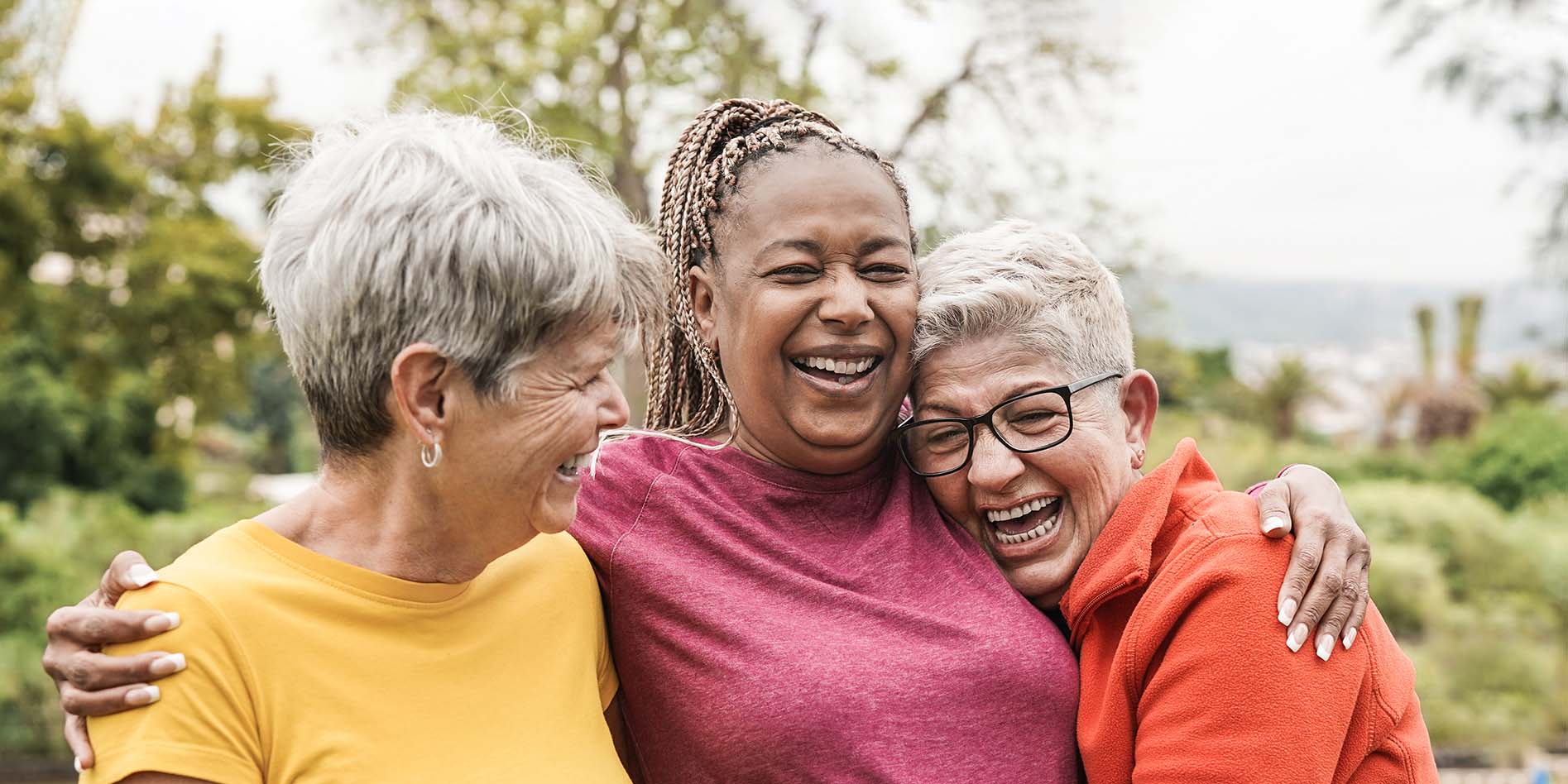The value of friendships
Social HealthArticle19 November 2021
Good friendships are one of the biggest influences of happiness in our lives. They can give us a sense of belonging and self-value that is extremely difficult to achieve on our own. However, not all social relationships are positive. Sometimes we can develop toxic relationships with negative people that can actually be detrimental to our mental and physical health in the long run. Fortunately, everyday we are given new opportunities to create positive friendships and the most important thing is knowing how to develop them.
The value of a good friend
There are a number of benefits that come with maintaining strong friendships and they can improve all areas of our health and wellbeing. Emotionally, strong friendships offer us unwavering support that can lift us up when we feel down, they can give us advice when we’re facing difficult decisions, be an ongoing source of inspiration and they can provide us with an environment to be ourselves.
But surrounding yourself with positive relationships can also do wonders for your physical health. In fact, results published in the journal of PLoS Medicine suggest that strong social relationships have a positive effect on our lifespans. This is because positive friendships work wonders on our stress levels, which are at risk of compromising crucial body functions like our immune system if they grow too high.
But of course, if positive relationships can do wonders for our health and happiness, negative relationships can have the opposite effect.
Toxic friendships & their effects on our health
A study conducted by the University of Rochester in 2015 revealed that having low-quality friendships, particularly in our thirties, can harm our wellbeing later in life. This is because toxic friendships can involve poor types of behaviour that leave psychological scars, impacting on our mental health. This behaviour includes betrayal, passive aggression, peer pressure to behave badly, contempt, dependency and unhealthy competition.
Toxic relationships can have a lot of negative effects on our wellbeing, so if we think we might be spending our time with people who aren’t having a great influence on our lives, then it’s probably time to surround ourselves with people who do. We can do this by developing strong friendships with people that will listen to us, bring out the best in us and have our best interests at heart.
How to develop strong relationships
Celebrate their differences
Accepting that we’re not all the same is the first step in opening ourselves up to wonderful relationships. The exposure to new ideas and perspectives can be priceless and often plays a big part in our own personal growth, but first we have to stop looking for people who are exactly like us.
Listen to them
While it’s wonderful to have people listen to our ideas and problems, strong relationship are a two-way street which means it’s important to pay the same courtesy back because it makes others feel supported and valued.
Give them your time
Giving another person our time is one of the biggest signs of respect in friendship. Work and family can make our lives very busy, so when we make time for friends, it shows that we value and care about them.
Communicate regularly
Having an open channel of communication between us and our friends is hugely important because it helps us better understand each other and foster an environment where each person is comfortable sharing their thoughts and feelings.
Be considerate, not distracted
We’re currently going through the age of technology and it feels like everything’s out to distract us, but good relationships require time and attention, so it’s important not to let things like phones and laptops come between us and our friends, because being prioritised below email or social media can affect your friends’ sense of self-worth.
Learn to give & receive feedback
One of the best things about good friends is that they’re honest which means their opinion is often some of the best advice we can receive, but of course anything negative said about us is always hard to swallow. By learning how to receive and deliver constructive feedback, we’re opening ourselves up to reaching our greatest potential and showing our friends that we value their thoughts and opinions.
Embrace trust
Trust is one of the best byproducts of a great friendship. Knowing you have trust in someone gives you comfort, minimises stress and makes you feel like you’re not alone. But the best type of trust is mutual trust, which means it must be given to be received.
Be empathetic
As the age old saying goes, “people will forget what you said, people will forget what you did, but people will never forget how you made them feel”. This quote speaks volumes about how important it is to listen to and understand another person’s feelings without the need to blame or give advice. This helps us to form emotional connections with our friends and strengthen the trust between us.
Valuable friendships are one of the most valuable assets we can posses throughout our lives. They play an enormous part in influencing how we act and feel so it’s important to surround ourselves with people who encourage us to be our best selves, because in the long run we’ll be happier for it.
If you think you may have friends who display the negative behaviours we mentioned earlier, or you just want to learn more about the positive effects of great friendship, please don’t hesitate to reach out for further information or support.



